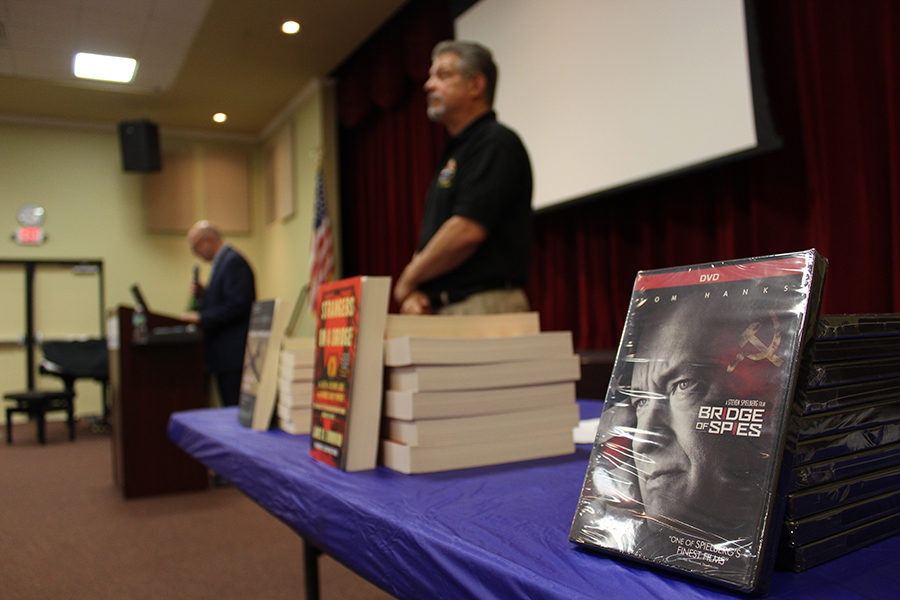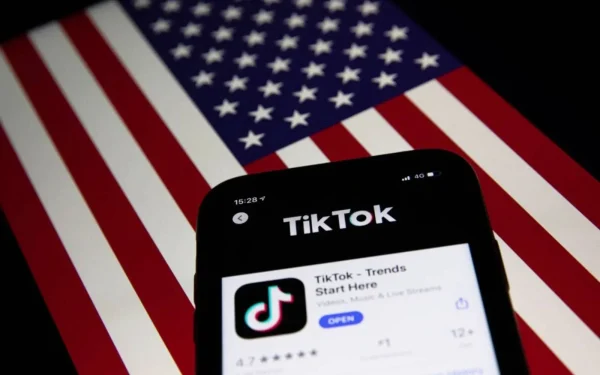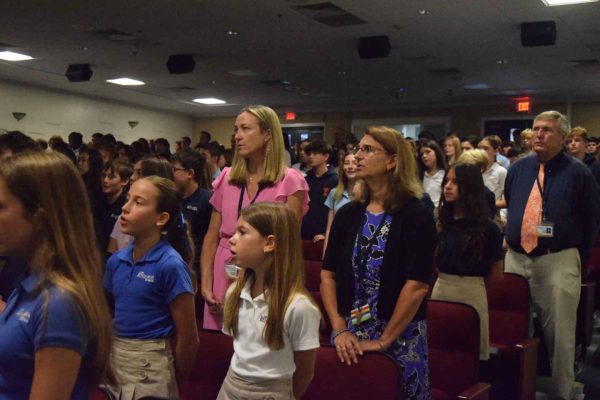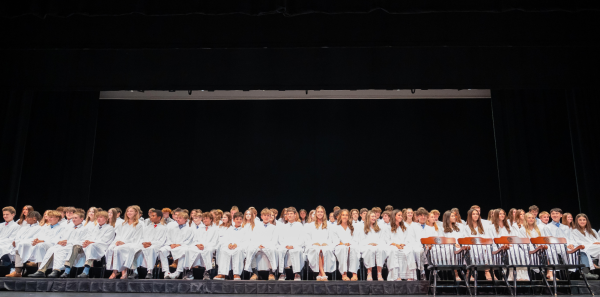Son of “Bridge of Spies” Pilot Comes to TBS
Steven Spielberg’s “Bridge of Spies” starring Tom Hanks is on display in the BPAC as Mr. Hagy introduces Mr. Powers, Jr. to the Middle School.
TBS recently welcomed a man whose father survived one of the most defining events of the Cold War, and who is the subject of the major motion picture Bridge of Spies. Who wouldn’t want to meet him, right? On April 4, Mr. Francis Gary Powers, Jr. presented his father’s story to the Middle School in the Barker Performing Arts Center. This was a special visit as a result of the seventh and eighth grade’s recent study of the Cold War in their history classes.
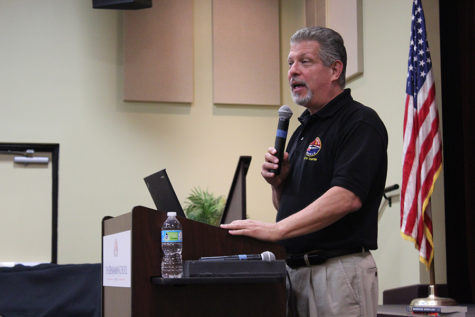
Francis Gary Powers, Sr., Air Force pilot of the United States government’s U2 plane, was shot down over the Soviet Union on May 1, 1960 while on a spy mission.
Powers, Sr. tried to activate the self-destruct mechanism on the plane, but could not reach it after releasing the canopy and seat belt. Soon after parachuting to the ground, he was found by Soviet Union authorities, taken into custody, convicted of espionage, and sentenced to 10 years in jail.
Untrained in deflecting interrogation tactics, Powers, Sr. often told the KGB, the main security agency for the Soviet Union, half-truths, giving them perhaps general information they could have found by other means, but not providing specifics about his mission. He survived 18 months in prison and on February 10, 1962, he was finally released back to the United States in exchange for Rudolf Abel, a KGB spy who had been apprehended in America by the CIA. It was an event brought to the silver screen in Steven Spielberg’s 2015 Oscar-nominated film Bridge of Spies, a film which Powers, Jr. had on display during his talk.
He noted that despite the fact that his father had not given up any classified secrets to the Soviet government, he still received a cool reception when he returned home. Many people criticized Powers, Sr. for not activating the self-destruct button on his aircraft which would have kept the photographic film and related classified parts of the plane out of Soviet hands.
However, after he was called to a hearing by the Senate Armed Services Select Committee, many of the senators serving on the committee lauded him for his courage and honor during his incarceration by the Soviets.
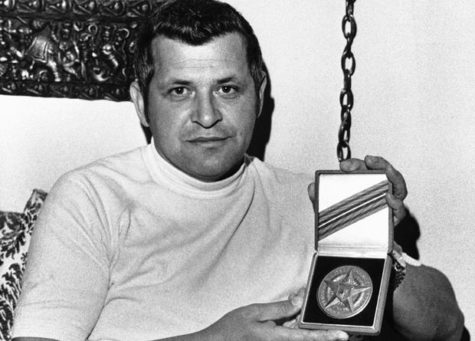
Francis Gary Powers, Sr. displays the CIA Intelligence Star for Valor medal which he received as a result of the U-2 incident.
Powers, Sr. then went on to work for the CIA, then became a test pilot for Lockheed Martin. However, after publishing his memoir about the U2 incident, Operation Overflight, he was summarily fired by the global security and aerospace company. According to Powers, Jr., he and many others believe it was because the book did not sit well with some of the folks at Lockheed Martin and the CIA.
As a result of his firing, Powers, Sr. landed a job as a traffic reporter for the Los Angeles TV news station KNBC. On August 1, 1977, due to a lack of fuel in the traffic helicopter he piloted, Powers, Jr. and his cameraman, George Spears, crashed and died.
Prior to Powers’, Jr. visit, Mr. Hagy offered free copies of Operation Overflight to any interested students, which gave the middle schoolers a whole new perspective on the Cold War.
“I have been reading the book about Powers, so I had some background information,” said sixth grader Alex Smyth, “but the talk [he] gave [provided] a lot more personal details about the experience that his family had.”
Mr. Powers also showed the students a propaganda cartoon released by the U.S. in 1948 which outlined the freedom-smothering ideology of communism. “When [Mr.] Powers, Jr. came I didn’t think it would be that interesting,” said seventh grader Will DiMaio, “but I really enjoyed the cartoon he showed us because it displayed how Americans felt during the time. It made me think about the actual effects of communism and the Cold War.”
The visit from Powers, Jr. not only helped put the Cold War into historical context for the students, but also allowed them see how the opposing ideologies of the United States and Soviet Union helped shape today’s global landscape and political systems.
In addition to his afternoon address to the students, Powers, Jr. also attended a dinner hosted by TBS for any interested students who wanted to ask him questions in a less formal setting. “[Attending the dinner] was great because [it] gave everyone a great chance to ask more personal questions that we would not be able to ask otherwise,” said seventh grader Sydney Steinger.
Although Powers, Sr. was awarded the CIA’s Intelligence Star in 1965, on the 40th anniversary of the U-2 Incident in 2000, his family was presented with his posthumously awarded Prisoner of War Medal, Distinguished Flying Cross, and National Defense Service Medal, and the CIA’s coveted Director’s Medal.
